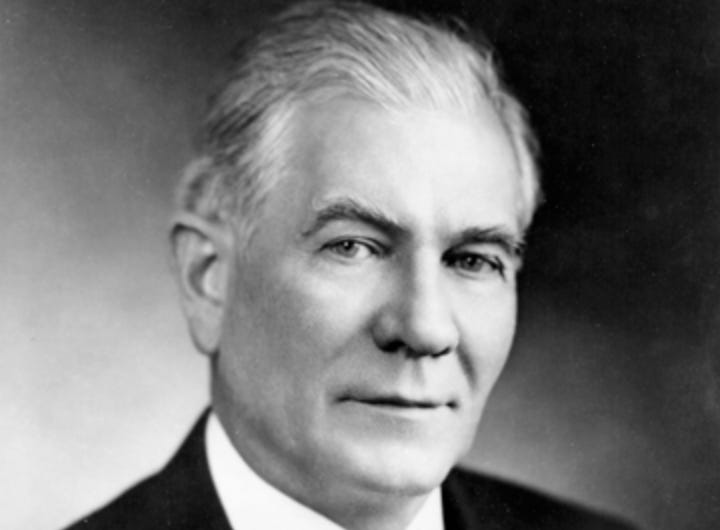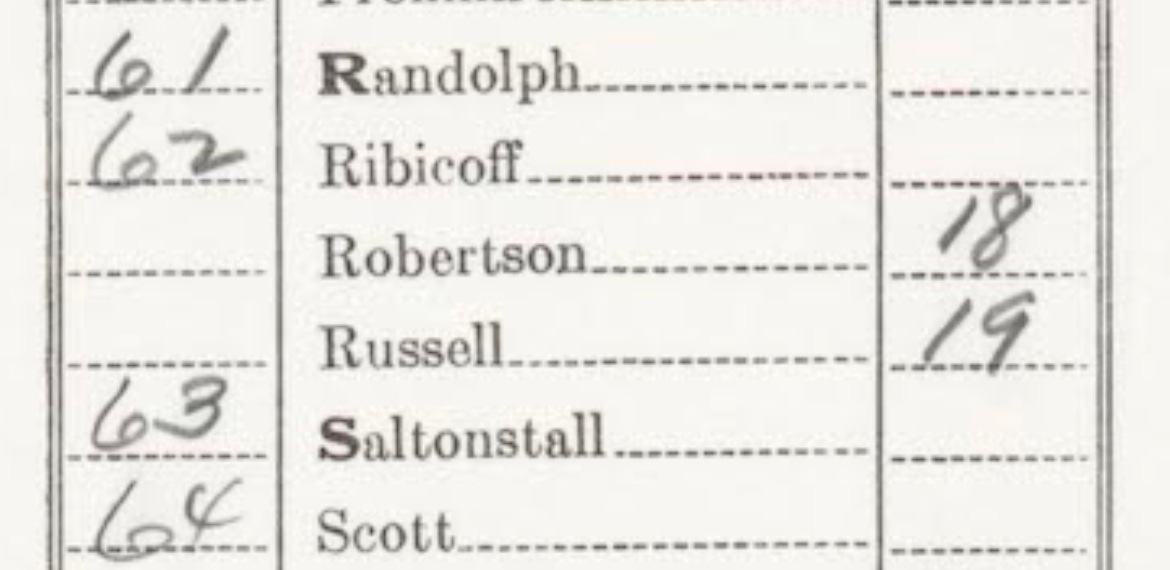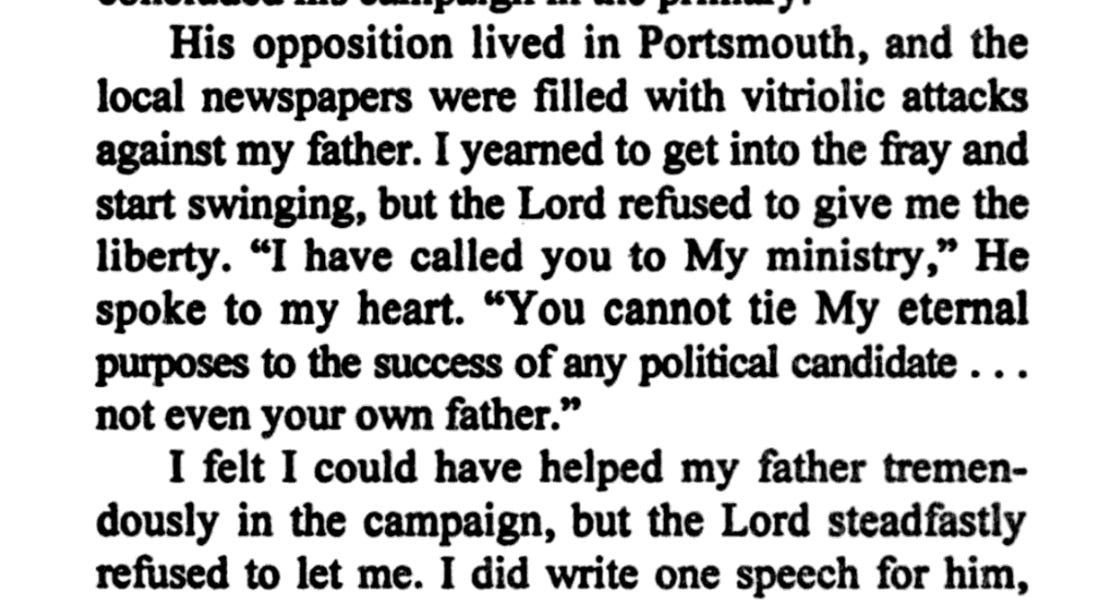I already had a nice debut post scheduled for Monday, but the news of Pat Robertson’s passing warrants a post today.
Though many people know Robertson for his effort to put the agenda of conservative Christians on the national radar — through his presidential campaign in 1988 and through his leadership of the Christian Coalition throughout the 1990s and beyond — they don’t realize that Robertson’s father, Absalom Willis Robertson, spent three decades in Congress, as a Democratic representative (1933-1946) and a senator (1946-1967) from Virginia.
A. Willis Robertson was a loyal member of the conservative political machine of his fellow U.S. Senator Harry Byrd and, as such, a strong segregationist. He denounced the Brown decision in 1954, asserting that “the colored people of Virginia” didn’t actually want integration and surely would have voted against it if they could — an ironic claim given the state of voting discrimination in the state — and then signed on to the Southern Manifesto in 1956, standing with other southern segregationists in urging “massive resistance” against the Court’s ruling.
During the 1960s, Robertson remained a persistent opponent of civil rights. As head of the Senate Banking and Currency Committee, he led the fight against JFK’s appointment of Robert Weaver to become head of the US Housing and Home Finance Agency. That might *seem* like a small fight, except for two things: Weaver was an African American and the appointment made him the point man for the administration’s promise to do away with segregation in all federal housing. Weaver was ultimately confirmed, and when the agency was elevated to a cabinet-level role, as the Department of Housing and Urban Development, Weaver became the first black Cabinet member.
Like most segregationist Southern Democrats, Pat Robertson’s father voted against the Civil Rights Act of 1964 and the Voting Rights Act of 1965. (Here’s the roll call vote from the Senate for the former:)
During the drive for the Voting Rights Act, President Lyndon Johnson sent the First Lady on a tour through the South, hoping to generate some small support. Most of the Southern Democrats weren’t persuadable, but they showed the common courtesy of meeting with Lady Bird Johnson when she came to town. A handful refused to meet with her, though, and A. Willis Robertson was one of them. Furious at the slight, LBJ recruited a primary challenger to Robertson in 1966 — and knocked him off.
And while his father’s political career was on the ropes, what did Pat Robertson do?
Nothing.
This is how Robertson put it in his 1972 autobiography, Shout It From The Housetops:
Like many devout Baptists in the 1960s, Robertson still believed in the faith’s centuries-long tradition of a wall of separation between church and state. (President Thomas Jefferson coined that phrase, remember, in an 1801 letter to Baptists.) Despite his personal wishes, he fervently believed that religious figures had no role in partisan politics.
And yet.
As Robertson’s political ambitions grew and he decided to run for the presidency in the 1988 election — as a Republican, following the general shift of southern conservatives from the Democratic Party of his father’s era to the GOP of his own — that passage loomed a little awkwardly.
So what did Pat Robertson do? He simply deleted it.







Am I the only person who has favorite historians?
So pumped you're on substack... been following you for years... very much looking forward to these newsletters. Gracias -jeff.